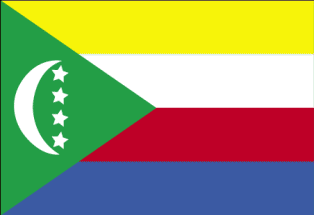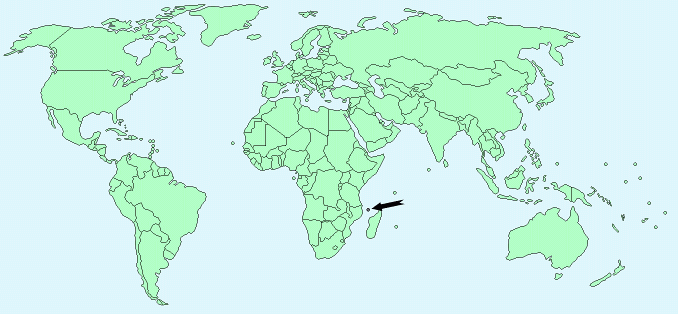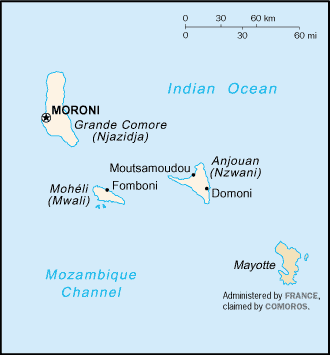Comoros


Continent – Africa
Region – Indian Ocean Islands
Size – 2,170 km²
Geography – volcanic islands
Language – Arabic, French
Religion – 98% Muslim, 2% Catholic
Monetary Unit – Comorian Franc
Natural Resources – negligible
Agriculture – vanilla, cloves, perfume essences, copra, coconuts, bananas, cassava
Industry – fishing, tourism, perfume distillation

Neighbouring Countries – Off coast of east Africa
Population – 766,865 (2014 estimate)
Population Growth Rate – 2.84%
Average Life Expectancy – 62.7
Capital City – Moroni (54,000 )
Highest Mountain – Le Kartala (2,360 m)
Longest River – No notable rivers
Climate – Tropical, warm and wet 19°C to 31°C
Yearly Rainfall – 255 cm (approx)
Plant Life – mangroves, coconut palms, mangoes, bananas, tropical hardwood trees, broom, lichens, and heather
Animal Life – Livingstone’s flying fox, bat, Macao
Aquatic Life – giant whales, large sharks, big manta rays, sailfish, sunfish, lobsters, crabs, shrimp, coelacanth
Bird Life – 22 unique bird species including Karthala Scops-owl, Anjouan Scops-owl and Humblot’s Flycatcher
Harvard Reference for this page:
Heather Y Wheeler. (2015). Comoros. Available: https://www.naturalhistoryonthenet.com/Facts_Figures/Country_Facts/comoros.htm. Last accessed Monday, July 18, 2016
Facts and Figures Pages
